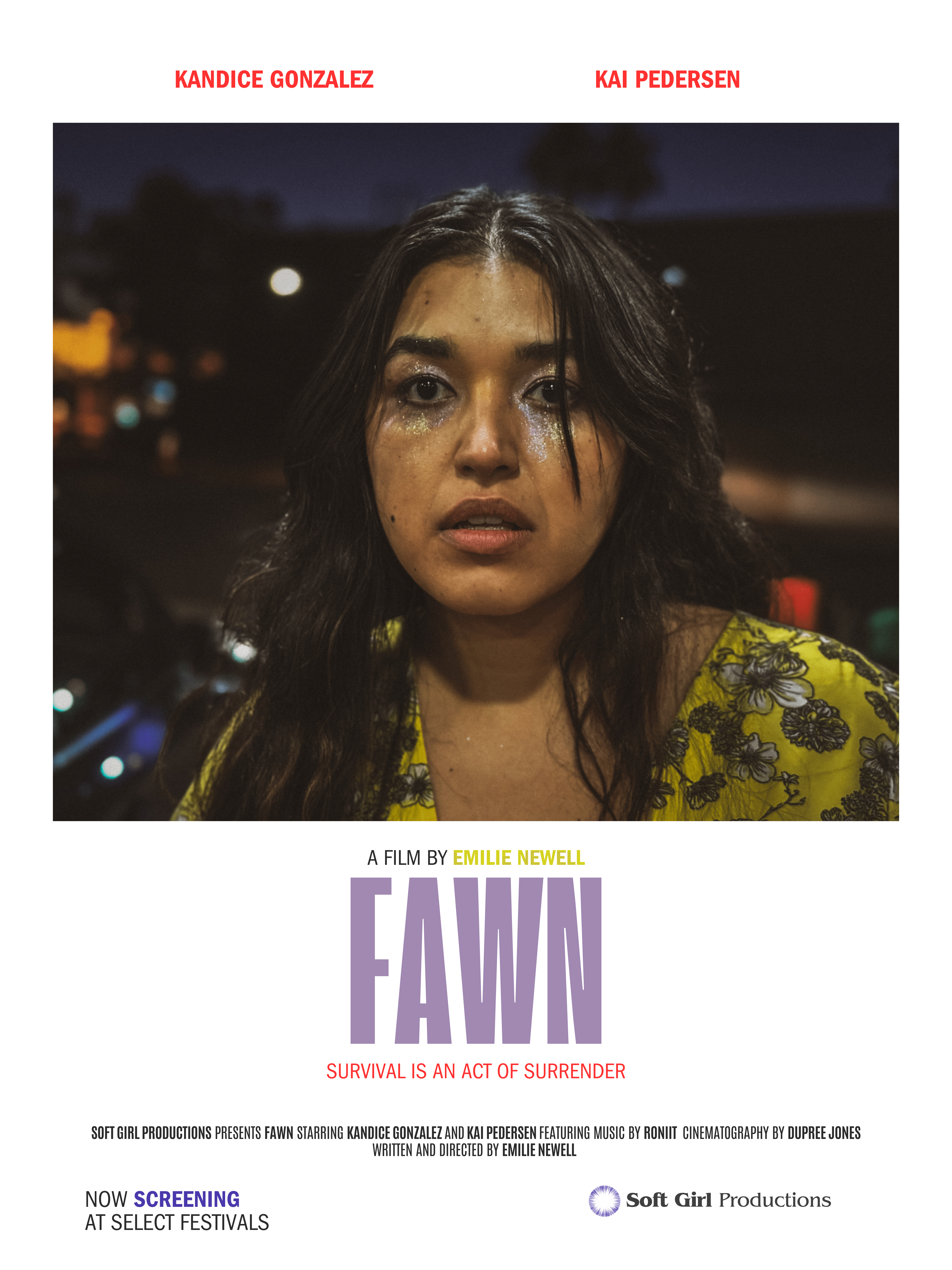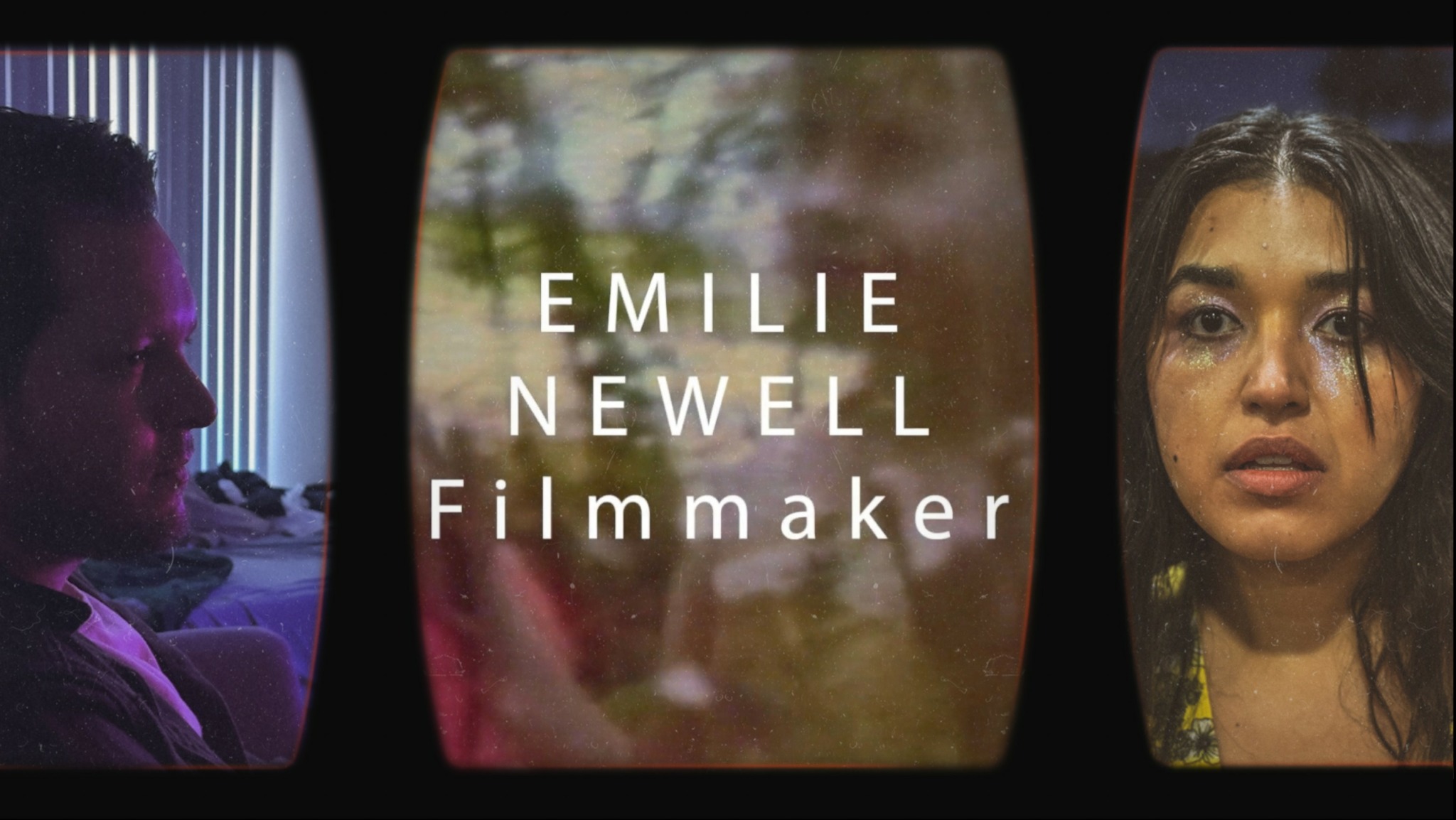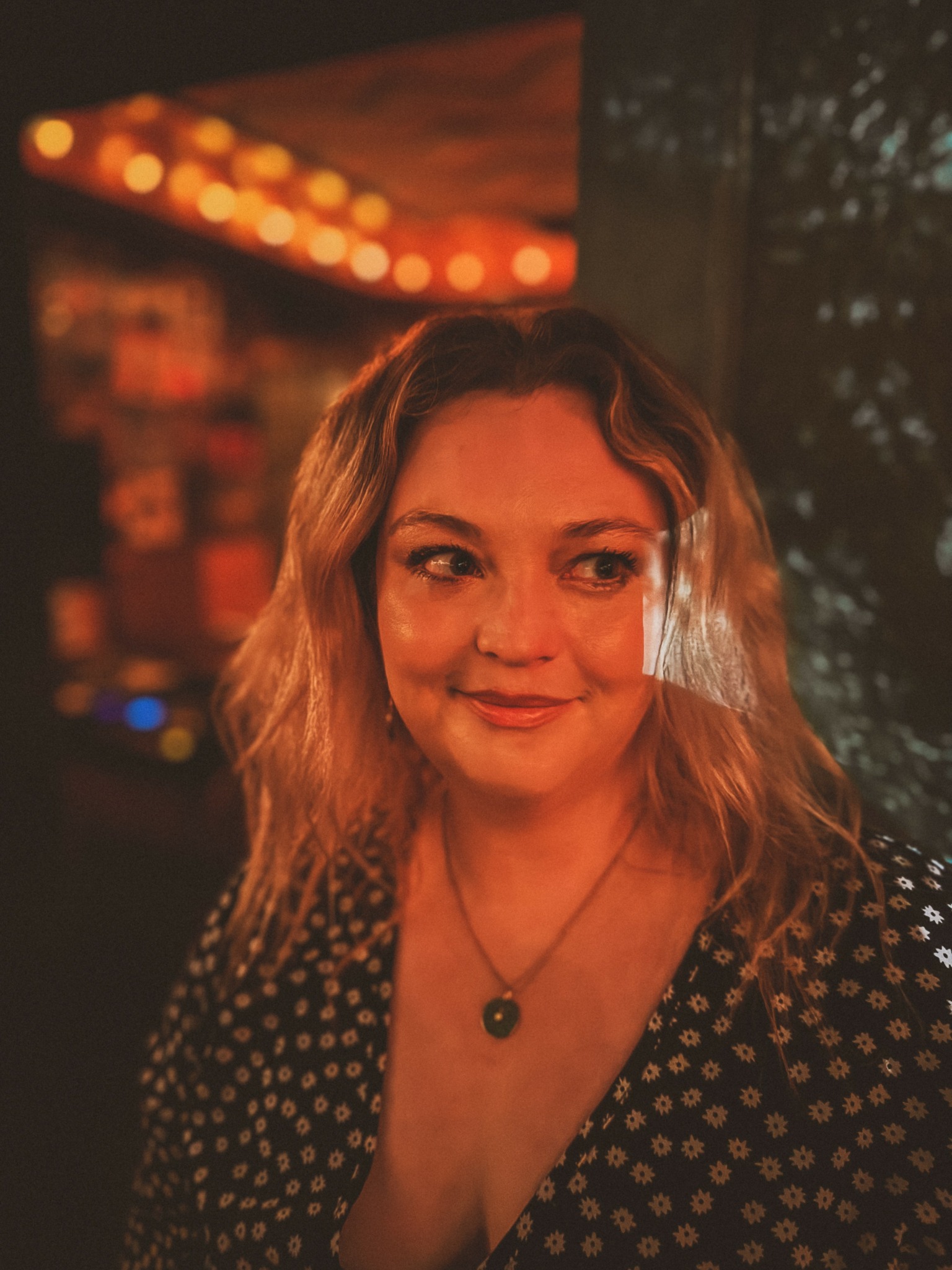We recently connected with Emilie Newell and have shared our conversation below.
Alright, Emilie thanks for taking the time to share your stories and insights with us today. What’s been the most meaningful project you’ve worked on?
The most meaningful project I’ve worked on is undoubtedly my short film, FAWN. This film holds a special place in my heart for many reasons. First, it’s based on the inciting incident from my feature film script of the same name, which is currently in preproduction as we search for producers, collaborators, and funding. The journey to create FAWN began just a few weeks after my father’s passing. His death was a profound reminder that life is fleeting, and he always encouraged me to chase my dreams. Realizing how short life can be, I felt a renewed sense of urgency to bring my stories to life and honor his memory by pursuing my passion for filmmaking.
The title FAWN is inspired by the fawn trauma response, a concept that describes how some individuals respond to trauma by trying to please the agressor in order to avoid conflict and/or survive the situation. While the film is not directly autobiographical, it weaves together experiences of trauma that I’ve either faced personally or witnessed in the lives of those close to me. The film explores the intricate feelings of guilt and complicity that arise from “fawning” during moments of trauma, shedding light on this often misunderstood response.
Creating FAWN was also a significant milestone as it marked my return to filmmaking after nearly a decade. I stepped back from the industry due to a combination of financial insecurity and the pervasive sexism and sexual harassment I encountered while working as a freelance production designer, art director, and set decorator in Kansas City after film school. This short film was a way for me to dust off the cobwebs and reimmerse myself in the craft I love. I took on multiple roles, from writing and producing to editing, which was both challenging and incredibly fulfilling.
FAWN is more than just a film to me; it’s a testament to resilience and the power of storytelling as a means of healing and reclaiming one’s voice. It’s a project that allowed me to process my grief, confront past traumas, and reestablish my place in the filmmaking world.

As always, we appreciate you sharing your insights and we’ve got a few more questions for you, but before we get to all of that can you take a minute to introduce yourself and give our readers some of your back background and context?
I am a filmmaker with a deep passion for telling visceral, nuanced stories centered on women’s experiences. My journey into filmmaking began in Kansas City, Missouri, where I started working in the art department of production during film school. However, my path has been anything but straightforward. After experiencing financial insecurity and confronting the harsh realities of sexism within the industry, I took a significant step back from filmmaking for nearly a decade.
During those years, I spent five years living and working in France, which deeply influenced my artistic sensibilities and narrative style. Now, I’m back and more committed than ever to creating films that resonate on a profound emotional level. My short film FAWN is a testament to this renewed commitment.
In terms of the creative works I provide, I focus on crafting stories that are both provocative and deeply human. My films aim to shed light on the intricacies of women’s lives, their struggles, and their triumphs, often exploring themes that are not widely discussed or understood. What sets my work apart is this unwavering commitment to authenticity and emotional depth, ensuring that each story is told with a visceral honesty that can both challenge and connect with audiences. Whether it’s a short film, a feature, or any other creative endeavor, you can expect work that is thoughtfully crafted, emotionally resonant, and unflinchingly honest. My brand is about more than just making films; it’s about creating meaningful connections and fostering a deeper understanding of the world around us.
Is there mission driving your creative journey?
The driving force behind my creative journey is a deep commitment to telling visually compelling stories that highlight women’s experiences. My goal is to shed light on the complexities of trauma, resilience, and the human condition, fostering empathy and understanding through my films. By exploring often overlooked or misunderstood aspects of women’s lives, I aim to create meaningful connections with audiences and spark conversations that can lead to greater awareness and change. My experiences, both personal and professional, have shaped this mission, and I am dedicated to using storytelling as a powerful tool for healing, connection, and transformation.

Are there any books, videos, essays or other resources that have significantly impacted your management and entrepreneurial thinking and philosophy?
One book that has significantly impacted my management and entrepreneurial philosophy is The Artist’s Way by Julia Cameron. This book is a seminal work on creativity, offering a comprehensive guide to unlocking one’s creative potential. It emphasizes the importance of nurturing one’s inner artist through daily practices like morning pages and artist dates, which encourage self-reflection and exploration.
The Artist’s Way has profoundly influenced how I approach my work and manage my creative projects. It taught me the importance of setting aside time for creative renewal and self-care, which has been crucial in maintaining my artistic vision and drive. The book’s emphasis on overcoming creative blocks and self-doubt has also helped me navigate the challenges of the filmmaking industry with resilience and confidence.
Contact Info:
- Website: https://www.emilienewell.com/
- Instagram: @emilie_michele_
- Youtube: https://www.youtube.com/@emilienewell
- Other: https://tiktok.com/@emilie.film



